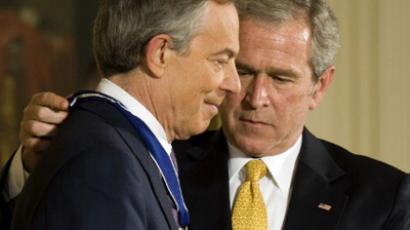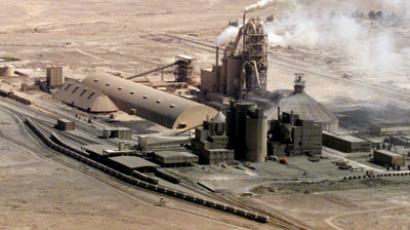UK FM Hague instructed cabinet not to mention Iraq War – report
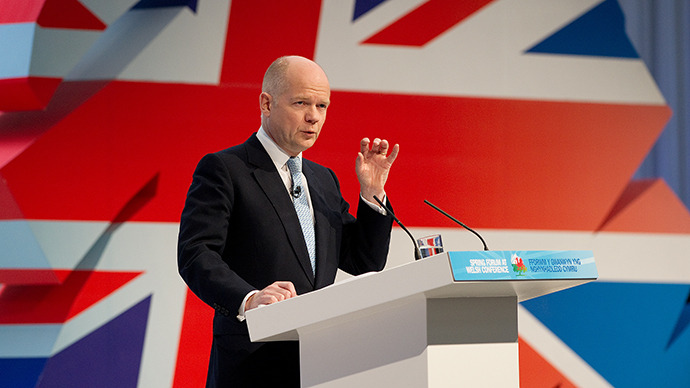
As the 10th anniversary of the Iraq war looms, the UK cabinet has been urged not to discuss the 2003’s invasion or its legality until an inquiry into it is complete. The instruction has been met with distaste from Liberal Democrat MPs.
A confidential letter warned MPs not to mention the war or
deeply controversial issues surrounding it. As March began,
UK Foreign Secretary William Hague issued a directive instructing
Conservative MPs to make no mention of Iraq or the conflict’s
100,000 deaths, according to a private correspondence leaked to the
Guardian.
“The foreign secretary has written to colleagues to remind them
that the agreed position of the coalition government is not to
comment on the case justification for the war until Chilcot has
reported,” a source close to Hague told the newspaper.
The Chilcot Inquiry is the UK public investigation into the
country’s role in the Iraq War. Whitehall sources said that Hague
wasn’t attempting to enforce a gag on a highly controversial
political issue, but was delaying commenting on the war until after
the inquiry’s publication.
The results of the Chilcot Inquiry were supposed to have been
published in 2012, but were delayed last July. Conclusions are now
expected to be made public mid- to late-2013. However, it is
unlikely the inquiry will render a formal judgment on the Iraq
intervention.
The report has utilized “oral and documentary evidence,”
according to a 2012 letter from Chilcot to UK Prime Minister David
Cameron, written at the time of the inquiry’s delay. This
includes evidence such as cabinet meeting minutes.
Despite having agreed it is “essential to hold as much of the
inquiry as possible in public,” the British Foreign Office
prevented the release of telephone conversations between then-UK PM
Tony Blair and then-US President George Bush in the days preceding
the invasion.
The evidence is also inconsistent, and gaps in the documentary
record and lapses in memory may have hindered the investigation,
according to the letter.
Sir John Chilcot, the inquiry’s head, once said the final report
would be twice the size of Tolstoy’s ‘War and Peace’ – over 1
million words long.
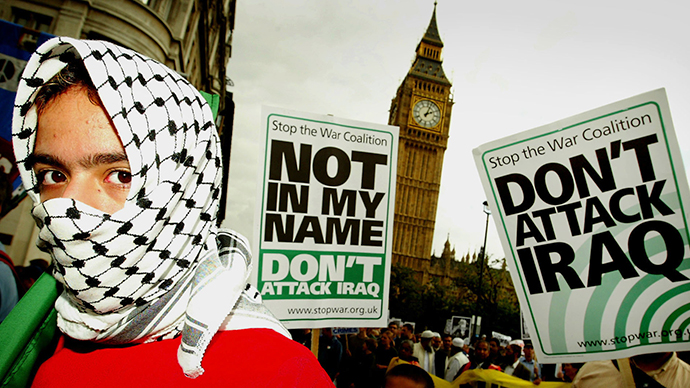
The 2003 invasion resulted in the deaths of tens of thousands of Iraqis, and 179 British deaths. The WikiLeaks Iraq war logs showed that more than 90,000 Iraqi civilians died throughout the course of the conflict, placing the overall number of Iraqi deaths at over 100,000.
The instruction not to mention these events has led to a bitter row within the Conservative/Liberal Democrat coalition. Liberal Democrat ministers stood strongly opposed to the Iraq invasion at the time, while Conservative Party members stood in staunch support. Many Liberal Democrat MPs intend to defy the directive.
“William Hague is entitled to his views on what should be
said about the Iraq war but he can’t force them on the Lib
Dems,” a senior Liberal Democrat source told the Guardian.
“The idea that Nick Clegg and the Liberal Democrats will be mute
on the 10th anniversary of the war in Iraq will get very
short shrift indeed.”
The party’s former leader, Sir Menzies Campbell, also spoke out against the attempt to silence MPs on the war’s anniversary, pointing out the high levels of Conservative enthusiasm for the war in 2003, despite their not being the ruling party.
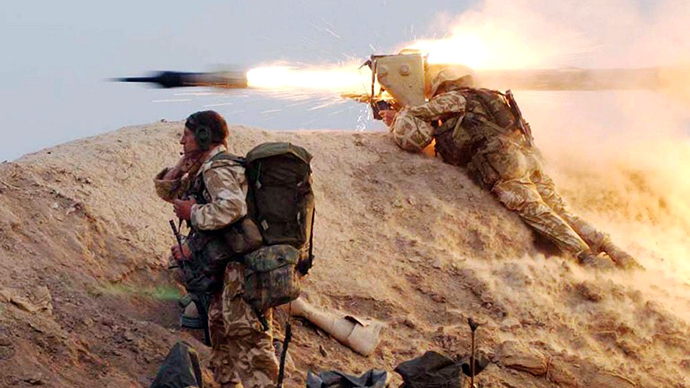
He went on to label UK intervention in Iraq as the country’s
biggest foreign policy blunder since Suez, which Conservative MP
Kenneth Clarke recently also used as a comparison while speaking to
the BBC, calling the Iraq War “the most disastrous foreign
policy decision of my lifetime… worse than Suez.”
In 2004, United Nations Secretary-General Kofi Annan stated that
the US-led invasion of Iraq was an illegal act that contravened the
UN charter.
Despite the primary motivation for the invasion being Saddam
Hussein’s alleged arsenal of weapons of mass destruction, the
failure to locate them both before and after the Iraq War
intensified international debate about the decision to go to war.
The only such discoveries ended up being badly corroded munitions
produced in the 1980s, which could not be used as originally
intended.
The UK’s decision to participate in the invasion was met with wide-scale protest at the time, not just in England but across Europe and around the world. In February 2003, an estimated 6 to 10 million people participated in protests that spanned 60 countries.
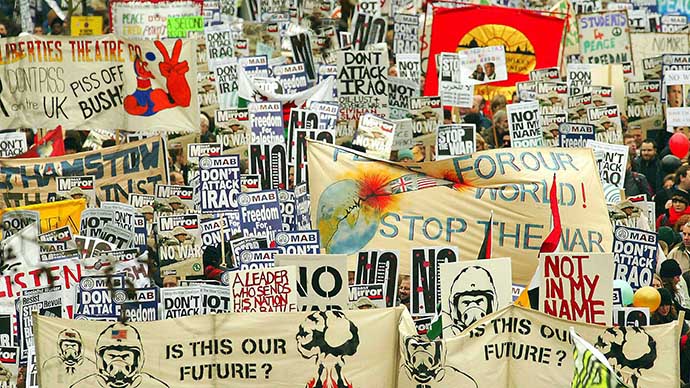
In the UK, an estimated 750,000 to 1-million-plus protesters participated in anti-war demonstrations; the march in London was named the largest political demonstration Britain had ever seen. Later in March, tens of thousands of schoolchildren staged walkouts across the country, and in the day following the actual invasion a wide-scale demonstration took place in front of the Houses of Parliament. In the days afterward, over 100,000 people took to the streets.













